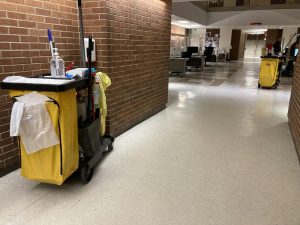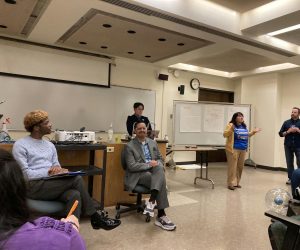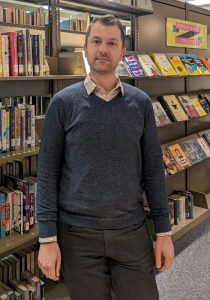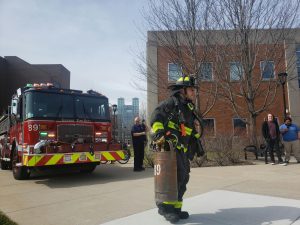Becoming Civically Engaged at the RNC
September 19, 2012
Being chosen to represent Northeastern Illinois University at the 2012 Republican National Convention in Tampa, Florida was a significant learning experience. After growing up and going to school in a major liberal city it was nice to gain a better understanding of the “other” side. The best way to learn more about conservative perspectives on issues in America during this presidential election cycle was to be immersed in the Republican climate.
The Washington Center (TWC) for Internships and Academic Seminars is the largest bipartisan educational organization in Washington D.C., and offers internships for students within a diverse range of majors. Through this program students are able to meet and speak with many experienced and honorable professionals with political, educational, and media backgrounds. “Campaign 2012 Academic Seminar Series- Republican National Convention” was one of the programs which lasted from August 18-31, 2012. TWC is committed to developing students’ leadership skills and encouraging participants to become civically engaged.
Over the course of the two weeks in Tampa, there were many students with different upbringings who saw the world in a perspective that I had not previously considered. Early on in the program there were a few times when I felt out of place and isolated because of my beliefs and background. Being first-generation American was not the norm within the 140 student participants at this event. Having parents who were born and raised in Iraq, who then immigrated to America over 30 years ago, meant that I had a different definition of what the word “immigrant” means.
A few days prior to the start of the RNC an orientation for the internship with Cable News Network (CNN) was held. Day one of the convention was cancelled due to Hurricane Isaac, the main concern being the high winds. Buses bringing delegates, guests, and students to the Tampa Bay Times Forum had to cross bridges which could be dangerous. Though the first day of the convention was cancelled, the day was still spent at the Forum, the Tampa Convention Center, the CNN anchor and producer booths, and the CNN Grill. The main lesson of the week was that news coverage never sleeps.
The internship supervisor at CNN, Lucy Spiegel, has been in the news industry for over 40 years. Marc Bullard, a co-intern from Southern Methodist University and I were in charge of picking up CNN correspondents from their hotels, making sure they got through security smoothly, and were prepared to go on the air. Most of the time during the RNC was spent getting to know CNN anchors Wolf Blitzer, Erin Burnett, Anderson Cooper, John King, Piers Morgan, Gloria Borger, Dana Bash, Candy Crowley, as well as CNN correspondents Ari Fleischer, Donna Brazille, Alex Castellanos, James Carville, Roland Martin, and David Gergen. There was also a chance to meet the politicians being interviewed by CNN.
Far too often we surround ourselves with like-minded individuals, but it is important to consider the other side. The role of the national conventions has changed over the years. Today they are more of a celebration rather than deliberative session. The Republican National Convention felt like a television show. Programming was planned, scripted, and served the purpose of entertaining the audience. Neither RNC candidate Romney or Ryan described how they planned to accomplish their goals. For individuals who are not very well informed it probably sounded great, which is slightly frightening considering the number of people who do not pay very much attention to politics. For someone hoping to learn more about conservative perspectives, the speeches were very general and more about individual stories rather than how the candidates were going to move the country forward. Politics is about compromise and understanding. More time should be spent making decisions that will benefit Americans, instead of playing Democrats and Republicans against each other like NFL teams.







